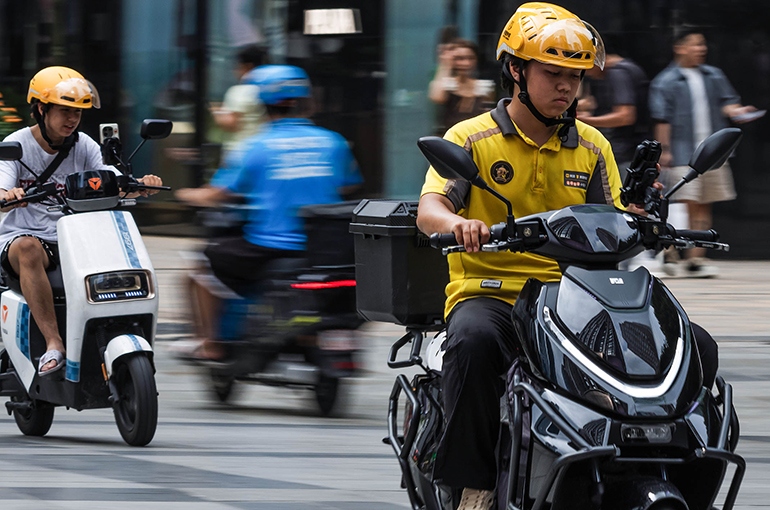 China’s Food Delivery Subsidy War Erodes Merchants’ Profits, Study Finds
China’s Food Delivery Subsidy War Erodes Merchants’ Profits, Study Finds(Yicai) Nov. 24 -- This year’s subsidy war in the Chinese food delivery industry has resulted in a rapid increase in orders but also eroded merchants’ profits, according to a study by Fudan University.
Restaurants’ average daily takeout and dine-in orders have increased 7 percent in July from a year earlier, but the average daily income of merchants declined 4 percent in the period, according to the study results published on Nov. 21 by Zhang Jun, dean of the School of Economics at Fudan University.
Chinese e-commerce giant JD.Com entered the food delivery business early this year to compete with Meituan and Alibaba Group Holding’s Ele.me, kicking off a price war. On April 30, Alibaba launched Taobao Flash Buy and announced in early July that it would invest CNY50 billion (USD7 billion) in subsidies for food delivery users and merchants.
Fudan University’s study was based on transaction data of over 40,000 restaurants nationwide during two main time frames. The first focused on the “heating-up period,” which ran from the launch of Taobao Flash Buy until early July, and the second was about the “escalation period,” which began in July.
In a scenario where the order profit margin remains unchanged, the profit of merchants from takeout and dine-in services dropped on average 1.7 percent during the heating-up period and as much as 8.9 percent during the escalation period, the study results showed. Meanwhile, if the order profit margin shrank, then the profits would decline even more.
The subsidy war has brought more orders to merchants, but they have also invested a large amount of money, and takeout has replaced dine-in, leading to a decrease in dine-in revenue, Hu Bo, an associate professor at the School of Economics of Fudan University, told Yicai. Therefore, merchants’ overall revenue has declined, and their profits have narrowed.
Moreover, under the impact of large subsidies, merchants got caught in a dilemma. Participating in the subsidies campaign would lead to lower profits, but not participating would also result in lower profits, as consumers could turn to other merchants offering subsidies, the study found.
Eventually, merchants would have no choice but to adjust their business strategies to adapt to market competition and join the subsidy war.
To curb the subsidy war, the State Administration for Market Regulation summoned Ele.me, Meituan, and JD.Com for talks on July 18, demanding that they standardize their promotional activities, rationally participate in competition, and build a win-win ecosystem for consumers, merchants, delivery riders, and platform enterprises.
Regulatory authorities should establish a supervision mechanism for platform subsidy behaviors, clarify the reasonable scope and boundaries of subsidies, safeguard the independent pricing and operation rights of small and medium-sized merchants, and prevent them from bearing excessive subsidy costs, the study suggested.
Editors: Dou Shicong, Futura Costaglione